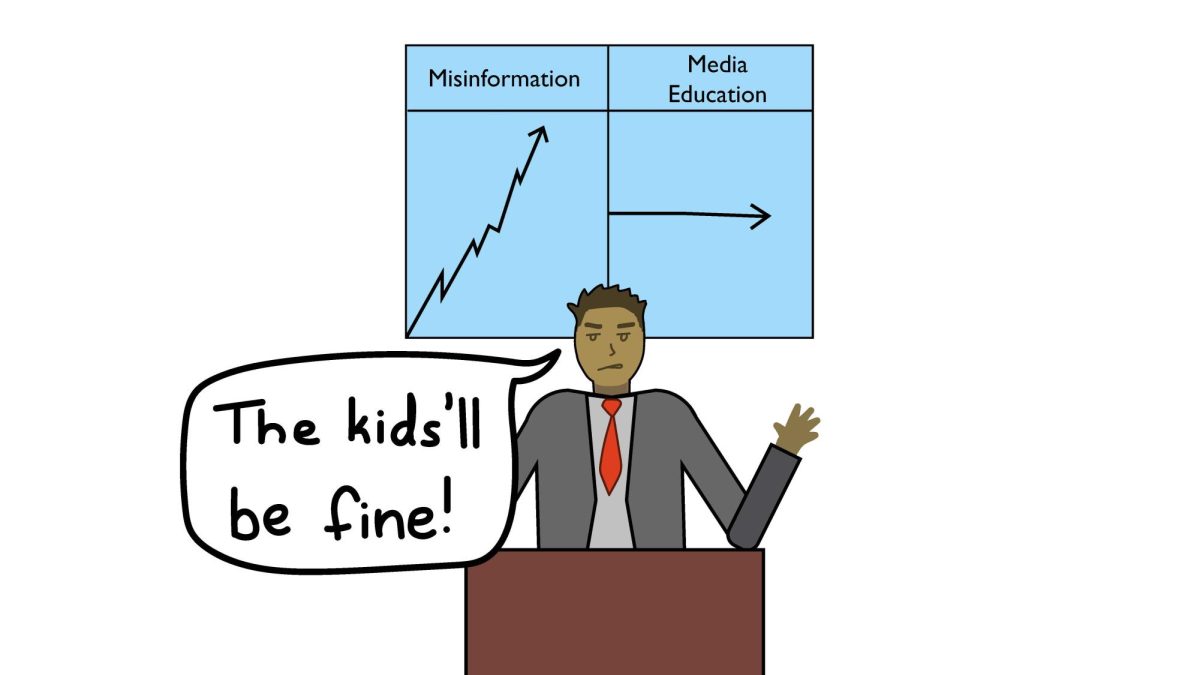As the school year comes to an end, many seniors in relationships are faced with the dilemma of deciding how to move forward with their love life. Distance can take a toll on two people used to seeing each other on a regular basis. Some may get through it, while most must accept that it won’t always work out. All should first weigh their options.
Long-distance arrangements make up around 25% to 50% of all college relationships, according to researchers at Wayne State University. Studies from St. Andrews University show that 40% of those relationships will not survive past the long-distance phase. When deciding whether it’s best to break up or stay together, first reflect on the kind of relationship you’re in and whether you can see yourself with this person a year from now. Consider the strengths and weaknesses of your relationship and whether it would be worth prolonging.
If you and your partner find yourselves becoming too dependent on each other, college is the perfect opportunity to figure out who you are without the other person. College is a period of immense growth as students transition from adolescence into adulthood. Staying together may prevent you from developing as individuals and gaining valuable experiences. It can limit you both socially when meeting new people and personally in terms of how much leeway you have to make your own choices.
Long distance demands a kind of maturity and time commitment that may not be for those who want college years full of lighthearted and fleeting experiences. It also requires a certain amount of vulnerability. If the priorities in your relationship don’t align, it may only drive the two of you further apart. For instance, one person being more invested in making it work than the other will eventually create conflict. Wanting different things from life will also lead the relationship into an inevitable dead end. After an extended amount of time away from your partner, the distance may make it impossible to avoid facing your true feelings towards the arrangement. Your unhappiness and discontentment would surface and become more challenging to ignore. There is no escaping the fatigue that accompanies a relationship stretched by countless miles.
Additionally, trust in a relationship comes easier for those who are able to regularly see their partner in person. Distance makes it more difficult to make time to communicate with and check in on the other person, which may cause concern and doubt. According to a study done by the BYU Scholars Archive, 50% to 75% of college students reported being in a relationship where someone had cheated. For emotional cheating — which is forming a close, intimate connection with someone besides your partner — distance was associated with an increased likelihood for both men and women. Lack of attention from your partner may result in someone in the relationship seeking that affection from an outside source. Being in a long-distance relationship further allows for infidelity as being far away from eachother makes cheating easier to get away with. This should be considered when deciding whether to prolong a highschool relationship into university life. Evaluate whether you believe your relationship has enough trust between both parties to survive.
For those who defy the odds and remain committed to making it work, it helps to have something to look forward to with your partner. Having a milestone awaiting such as a trip together, or applying for a job or a school in the same city helps maintain enthusiasm and optimism in the relationship. The prolonged absence of physicality in a relationship can result in a deeper emotional connection. The most you can really do is talk, and you may learn more about your partner because of that restriction. Having good communication, solid trust and true loyalty helps make a long-distance relationship last.
However, while discussing issues properly instead of allowing them to fester does build the groundwork for any good relationship, it may just not be enough for long-distance. Sometimes in these kinds of relationships, people may experience assumptions and judgements that are often exaggerated or entirely false. If you notice yourself or your partner becoming excessively jealous or irrationally possessive and fail to resolve it, the relationship could turn toxic. Even if the relationship does persevere enough to make it past the long-distance phase and back into an in-proximity relationship, the time apart may prove to be so character changing that the two people may just not fit as well together as they used to. In the end, the cons may simply outweigh the pros.
Ultimately, it is impossible for a long-distance couple to survive without hope — the hope that one day the two people will be together and achieve their happily ever after. Few may survive the hardships and experience a good ending while many others may simply have to face that long-distance isn’t for them. Even if this does seem like the right person, it could still just be the wrong time.










